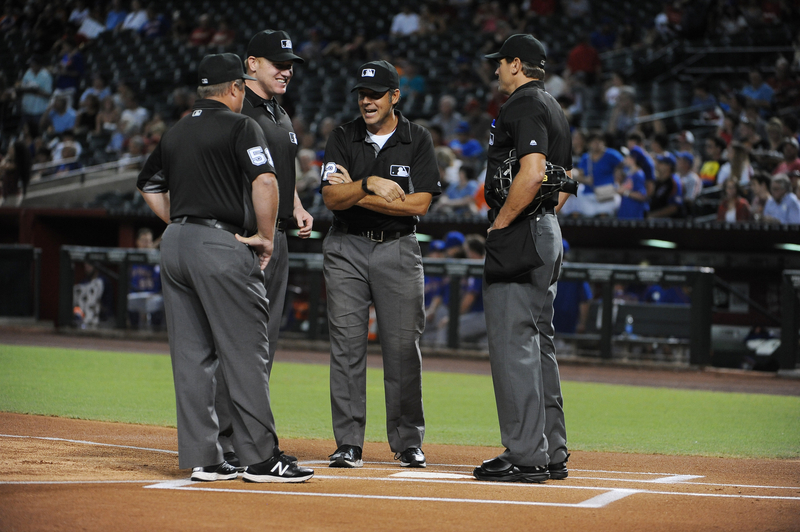Last updated on October 27th, 2023 at 07:33 am
A professional umpire career for Minor League and Major League Baseball is challenging and rewarding. Umpiring has been in the game of baseball since the beginning of time and controls the flow of the game. If you enjoy making quick decisions, having confidence in yourself, and more, umpiring may be for you. Here is what you need to know about becoming an umpire in professional baseball.
The Basic Requirements to Have If You Want to Become an Umpire
Each candidate needs to have a few pre-recs if they want to become an MLB umpire. Before enrolling in a professional umpire school, candidates should meet a few requirements. Below are some of the necessities that someone needs to have if they want to ump professional baseball.
- A High school diploma or G.E.D
- At least 18 years of age
- 20/20 vision
- A healthy body and athletic mobility
- Strong communication skills
- A driving record
How to Start the Journey (The Umpire School)
Anyone who meets the basic requirements of umping above needs to attend a professional umpire training school. The Harry Wendelstedt Umpire School out in St. Petersburg, Florida, is part of the Minor League Baseball Umpire Development Training Academy. The program lasts a few weeks and typically runs during the off-season in January and February. The program costs a total of $2,450 as of 2021.
Students will learn the rule book during the program, how to make quick decisions, mechanics, signals, and more. At the end of the program, top graduates are ranked on their performance and sent to the Minor League President’s office for the next steps. Depending on the opening of positions, students will begin their officiating careers with either a Rookie or Short-A Minor league team. As a note, about 15% of the school candidates move on from their classmates.
The Road to the Major League Level
New umpires typically spend a few years working the lower-levels of Minor League baseball to improve their skills before moving to the big leagues. Umpires move up the ranks from Rookie ball, Double-A, and Triple-A baseball games. Along with the Minor League Level, umpires receive consistent feedback on their performance before receiving a consideration to become a professional baseball umpire. Refs officiating Triple-A baseball can also work spring training games for the MLB. Working spring training games is an excellent way to get into the MLB since you are working with Major League Baseball talent.
Conclusion: How to Become an MLB Umpire?
Umpiring has been in baseball since the inception of the game. Most of the time, umpires go unnoticed during games when they get the calls right. However, unfortunately, referees make mistakes, making umpiring an incredibly stressful job.
Related Posts
How Many Stitches are on a Baseball?
Why Do Baseball Players Chew Gum?
What is the Umpire in Baseball and Softball?
Why Do Athletes Wear Eye Black?
How to Break in a Baseball Glove
How Much Do Minor League Baseball Players Make?
Greg Kristan, owner of The Stadium Reviews, LLC and TM Blast, LLC, brings his extensive experience visiting over half of the MLB ballparks, along with numerous MLS, NHL, NBA, and NFL venues, to provide in-depth coverage on the bag policy, food options, and parking. He has also been interviewed about his experiences on several sports podcasts.





